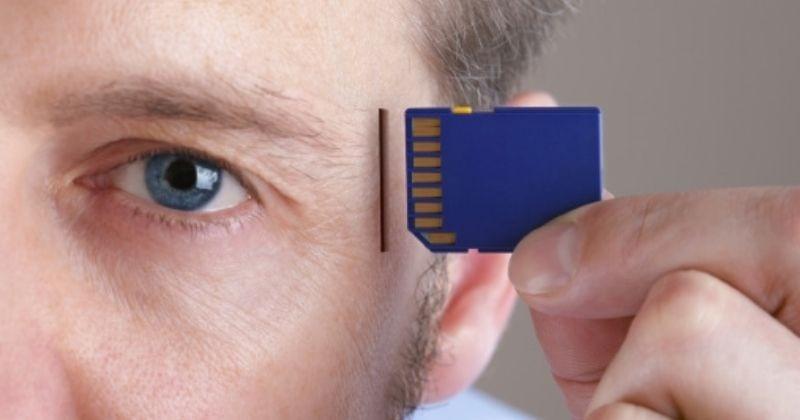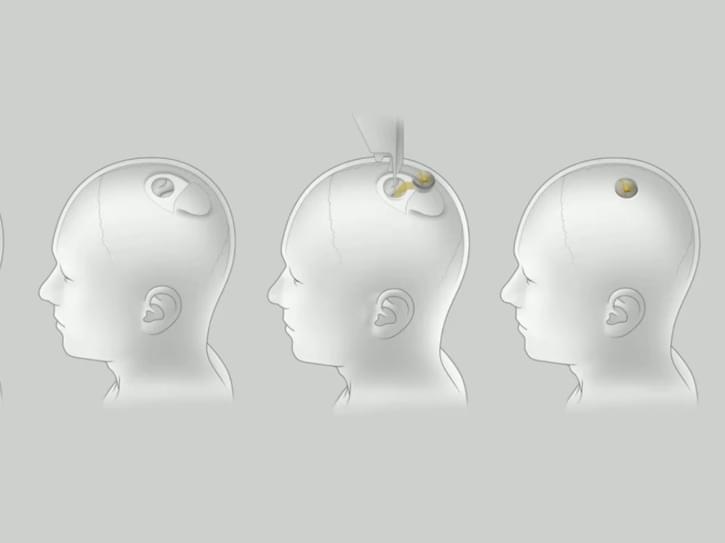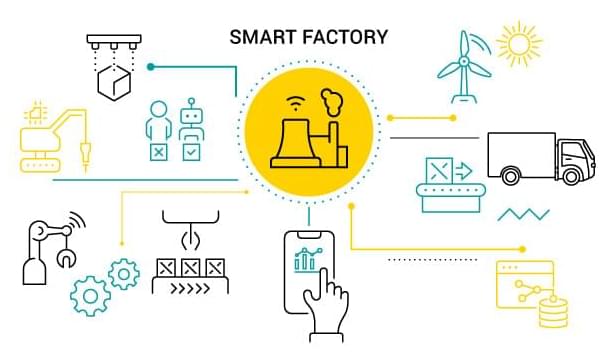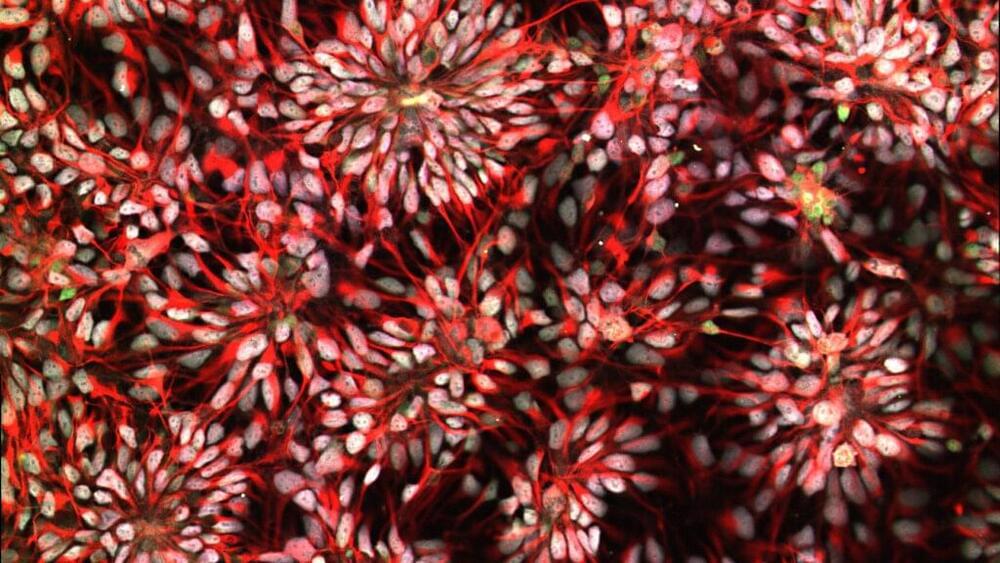Strokes are among the leading cause of long-term disability in the elderly, although most can be avoided by adopting a healthy lifestyle.


An editorial writer and columnist for the Washington Post wrote a screed attacking electric cars this week. His heavily slanted piece was filled with misinformation. Here’s the truth about driving an electric car in winter.
Last week, hundreds of motorists on I-95 in Virginia were stuck for hours when a blizzard closed the highway south of Washington, DC. Highway crews couldn’t spread ice-melting chemicals before the storm arrived because the rain that preceded it would have washed them away. But when temperatures dropped, the rain quickly turned to ice. Then the snow came and made the ice treacherously slippery. Tractor trailers trying to get off the highway lost control, blocking many exit ramps. Senator Tim Kaine was trapped in the tangled mess of stalled cars for 27 hours.
Afterwards, Charles Lane, an editorial writer and columnist for the Washington Post, wrote a blistering opinion piece entitled, “Imagine Virginia’s Icy Traffic Catastrophe — But With Only Electric Vehicles.” In it, he wails about the Tesla driver who banged on the door of a tractor trailer, begging for help because he was afraid his family might freeze to death if his battery ran out of power. “If everyone had been driving electric vehicles, this mess could well have been worse,” Lane writes.
He goes on to say even Tesla warns on its website the cold temperatures can reduce range. Charging a cold battery takes longer, and besides, he says, there aren’t that many charging stations anyway. And what happens if the power goes out? What then? Lane, a graduate of Yale law school, apparently lacks the mental capacity to realize that when the power goes out, gas pumps stop working as well.


𝙀𝙫𝙤𝙡𝙪𝙩𝙞𝙤𝙣𝙖𝙧𝙮 𝙗𝙞𝙤𝙡𝙤𝙜𝙞𝙨𝙩𝙨 𝙝𝙖𝙫𝙚 𝙩𝙧𝙤𝙪𝙗𝙡𝙚 𝙚𝙭𝙥𝙡𝙖𝙞𝙣𝙞𝙣𝙜 𝙬𝙝𝙮 𝙨𝙘𝙝𝙞𝙯𝙤𝙥𝙝𝙧𝙚𝙣𝙞𝙖 𝙖𝙣𝙙 𝙗𝙞𝙥𝙤𝙡𝙖𝙧 𝙙𝙞𝙨𝙤𝙧𝙙𝙚𝙧 — 𝙬𝙝𝙞𝙘𝙝 𝙖𝙧𝙚 𝙝𝙞𝙜𝙝𝙡𝙮 𝙝𝙚𝙧𝙞𝙩𝙖𝙗𝙡𝙚 𝙘𝙤𝙣𝙙𝙞𝙩𝙞𝙤𝙣𝙨 — 𝙥𝙚𝙧𝙨𝙞𝙨𝙩 𝙞𝙣 𝙥𝙤𝙥𝙪𝙡𝙖𝙩𝙞𝙤𝙣𝙨 𝙙𝙚𝙨𝙥𝙞𝙩𝙚 𝙝𝙖𝙧𝙢𝙞𝙣𝙜 𝙧𝙚𝙥𝙧𝙤𝙙𝙪𝙘𝙩𝙞𝙫𝙚 𝙛𝙞𝙩𝙣𝙚𝙨𝙨.
𝙍𝙚𝙨𝙚𝙖𝙧𝙘𝙝𝙚𝙧𝙨 𝙢𝙖𝙮 𝙝𝙖𝙫𝙚 𝙛𝙤𝙪𝙣𝙙 𝙖𝙣 𝙚𝙭𝙥𝙡𝙖𝙣𝙖𝙩𝙞𝙤𝙣 𝙞𝙣 𝙧𝙚𝙘𝙚𝙣𝙩𝙡𝙮 𝙚𝙫𝙤𝙡𝙫𝙚𝙙 𝙧𝙚𝙜𝙞𝙤𝙣𝙨 𝙤𝙛 𝙩𝙝𝙚 𝙝𝙪𝙢𝙖𝙣 𝙜𝙚𝙣𝙤𝙢𝙚 𝙩𝙝𝙖𝙩 𝙖𝙧𝙚 𝙣𝙤𝙩 𝙪𝙨𝙪𝙖𝙡𝙡𝙮 𝙧𝙚𝙘𝙤𝙜𝙣𝙞𝙯𝙚𝙙 𝙖𝙨 𝙜𝙚𝙣𝙚𝙨 𝙗𝙪𝙩 𝙘𝙖𝙣 𝙨𝙩𝙞𝙡𝙡 𝙘𝙤𝙙𝙚 𝙛𝙤𝙧 𝙥𝙧𝙤𝙩𝙚𝙞𝙣𝙨.
𝙏𝙝𝙞𝙨 “𝙙𝙖𝙧𝙠 𝙜𝙚𝙣𝙤𝙢𝙚” 𝙢𝙖𝙮 𝙜𝙚𝙣𝙚𝙧𝙖𝙩𝙚 𝙥𝙧𝙤𝙩𝙚𝙞𝙣𝙨 𝙩𝙝𝙖𝙩 𝙖𝙧𝙚 𝙫𝙞𝙩𝙖… See more.
The Neuro-Network.
𝐂𝐥𝐮𝐞𝐬 𝐭𝐨 𝐨𝐫𝐢𝐠𝐢𝐧𝐬 𝐨𝐟 𝐛𝐢𝐩𝐨𝐥𝐚𝐫 𝐚𝐧𝐝 𝐬𝐜𝐡𝐢𝐳𝐨𝐩𝐡𝐫𝐞𝐧𝐢𝐚 𝐟𝐨𝐮𝐧𝐝 𝐢𝐧 ‘𝐝𝐚𝐫𝐤 𝐠𝐞𝐧𝐨𝐦𝐞’
The authors of a recent study on the genetics of schizophrenia and bipolar disorder identify a potential role for the so-called dark genome.

Elon Musk’s Neuralink technology will see its first human implant this year. If you’re excited to see how Musk’s brain chip will work on humans, we might find out very soon.
The brain-interface tech company was founded by Elon Musk in 2016 and its chip will finally be implanted into a human brain this year. In 2021, the implant was seen in action in a monkey who played MindPong. The monkey was able to play the game by simply thinking it, with help from Neuralink chip.

Elon Musk, Neuralink Demonstration.

The first humans emerged on Earth about 4 million years ago, but new evidence from the study of human evolution has revealed compelling evidence that a small group of these hominins was genetically modified by ancient alien visitors to create the first Homo sapiens.
Researcher and author Daniella Fenton has thoroughly analyzed humanity’s earliest origins and its sudden acceleration in brain development nearly 800,000 years ago, and this research has led to a major revelation.
“Homo sapiens is the creation of ancient astronauts who came through a wormhole in the Pleiades star cluster more than 780,000 years ago.”
The Australian researcher, an expert in equine lineages and gene expression, discovered numerous genetic changes that mark humans as abnormal when compared to modern primate species, some so extreme that they are best explained by advanced genetic engineering.
Full Story:

Smart factories will be very useful in metaverse.workers can operated machines in factories using Internet.
As the idea of interconnected and intelligent manufacturing is gaining ground, competing in the world of Industry 4.0 can be challenging if you’re not on the very cusp of innovation.
Seeing the growing economic impact of IIoT around the globe, many professionals and investors have been asking themselves if the industry is on the verge of a technological revolution. But judging from the numbers and predictions, there is tangible and concrete evidence that the idea of smart manufacturing has already burst into corporate consciousness. According to IDC, global spending on the Internet of Things in 2020 is projected to top $840 billion if it maintains the 12.6% year-over-year compound annual growth rate. There is no doubt that a huge part of this expenditure will be devoted to the introduction of IoT into all types of industry, especially including manufacturing.
But there is not only the forecasts and statistics to tell us that the idea of Industrial Internet of Things is gaining traction across virtually all business sectors. Having already proven to be the crunch point in manufacturing, IIoT brings the reliability of the machine to machine communication, the security of preventive maintenance and the insight of big data analytics. In other words, the IIoT revolution has already begun.
COUNTDOWN TO RELEASE: Here comes the next and final installment in The Cybernetic Theory of Mind series ― The Omega Singularity: Universal Mind & The Fractal Multiverse ― which is now available to pre-order as a Kindle eBook on Amazon. In this final book of the series, we discuss a number of perspectives on quantum cosmology, computational physics, theosophy and eschatology. How could dimensionality be transcended yet again? What is the fractal multiverse? What is the ultimate destiny of our universe? Why does it matter to us? What is the Omega Singularity? These are some of the questions addressed in this concluding volume of my eBook series.
#OmegaSingularity #UniversalMind #FractalMultiverse #CyberneticTheoryofMind #EvolutionaryCybernetics #PhilosophyofMind #QuantumCosmology #ComputationalPhysics #futurism #posthumanism #cybernetics #cosmology #physics #philosophy #theosophy #consciousness #ontology #eschatology
This final book V of The Cybernetic Theory of Mind series is an admittedly highly speculative theoretical work where we’ll be testing the limits of our imagination envisioning the prospects of our distant future and the deepest secrets of hyperreality. In our fractal, computational Omniverse (all multiversal structure combined, all that is) one may assume that an infinitely large number of civilizational minds, syntellects, have followed or will follow a path, similar to ours, in their evolutionary processes. At the highest level of existence and perceptual experience, that we can rightfully call ‘Dimensionality of Hypermind’, universal minds would form some sort of multiversal network of minds, layer after layer seemingly ad infinitum.
The Cybernetic Theory of Mind series is a collection of books by evolutionary cyberneticist and philosopher Alex M. Vikoulov on the ultimate nature of reality, consciousness, the physics of time, computational physics, philosophy of mind, foundations of quantum physics, the technological singularity, transhumanism, posthumanism, the impending phase transition of humanity, the simulation hypothesis, economic theory, the extended Gaia theory, transcendental metaphysics and God. If you’re eager to familiarize with probably the most advanced ontological framework to date or if you’re already familiar with the Syntellect Hypothesis which, with this series, is now presented to you as the full-fledged Cybernetic Theory of Mind, you should get this book five of the series which corresponds to Part V of The Syntellect Hypothesis: Five Paradigms of the Mind’s Evolution.

Our gut microbiome helps us out every day by processing the fiber we can’t digest. The bacteria ferment the fiber into key chemicals known as short-chain fatty acids, or SCFAs, that are essential for human health. SCFAs fight inflammation, help kill dangerous bacteria, protect the lining of the gut, and can even help prevent cancer.
In a new study, the John Denu lab at the University of Wisconsin-Madison’s Wisconsin Institute for Discovery has learned that the fatty acids butyrate and propionate also activate p300, a crucial human enzyme that promotes the unspooling of DNA. This unwound DNA allows more genes to become active and expressed, which ultimately affects human health.
A study by Wisconsin Institute for Discovery researchers challenges long-held beliefs, with potential implications for physiological processes and diseases such as propionic acidemia, autism spectrum disorder and Alzheimer’s disease.

Down syndrome is the most common genetic disorder, impacting about 1 in 700 newborns around the world. At some point during their first hours and days of embryonic development, their dividing cells fail to properly wriggle a chromosome pair away from each other, leaving an extra copy where it shouldn’t be. Although scientists have known for more than six decades that this extra copy of chromosome 21 causes the cognitive impairment people with Down syndrome experience, exactly how it happens remains a matter of debate.
But in recent years, scientists using new RNA sequencing techniques to study cells from pairs of twins — one with Down syndrome and one without — have repeatedly turned up a curious pattern. It wasn’t just the genes on chromosome 21 that had been cranked way up in individuals with Down syndrome. Across every chromosome, gene expression had gone haywire. Something else was going on.
On Thursday, a team from the Massachusetts Institute of Technology reported in Cell Stem Cell that it may have found a surprising culprit: senescent cells, the same types implicated in many diseases of aging. The study was small and preliminary, and some experts want to see it replicated in samples from more individuals before buying into its interpretations. But they are nevertheless intriguing.